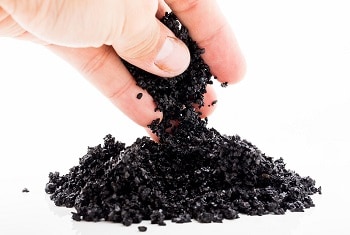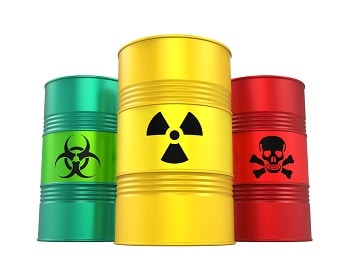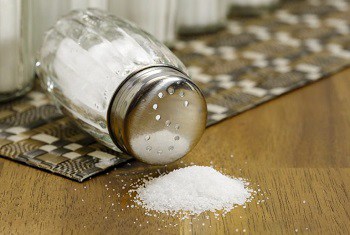Updated: 1/22/2022
You have seen the commercials and even heard about them on the radio. Everyone is smiling, and they seem so happy when they drink their water that has been filtered by a Brita water filtering pitcher. But do they really work, and will they help with your water?
If you are looking to improve the taste, or reduce odor in your drinking water, a Brita filter will help. But if you want to greatly reduce dissolved solids in your water and make it noticeable healthier, a Brita filter will not be worth the money.
If you would like to improve the taste of your drinking water and don’t want to have to carry heavy cases of bottled water into your home, there are several ways to do it. Water filter pitchers are one way to improve your drinking water, but they don’t filter everything.
What Do Brita Filters Filter Out Of Water?
Brita water filters do a great job of improving the taste of water and eliminating mild odors that can be chemicals that can be found in water like chlorine. Chlorine is used to disinfect public water supplies and is certainly NOT healthy or enjoyable to drink.
In most cases, a Brita filter will help to reduce, (but not necessarily completely remove) impurities from your water. But if you are concerned about any of the impurities that a Brita filter can remove from your water, a Brita water filter will be well worth the money.
| What Brita® Reduces or Removes from Tap Water | Longlast Filter | Standard Filter | Stream Pitcher Filters | Bottle Filters | Faucet Filters |
| Chlorine (Taste & Odor) | Yes | Yes | Yes | Yes | Yes |
| Lead | Yes | Yes | |||
| Mercury | Yes * | Yes | |||
| Cadmium | Yes | Yes | |||
| Benzene | Yes | Yes | |||
| Asbestos | Yes | Yes | |||
| Particulates | Yes | Yes | Yes | Yes | |
| Class I | Class VI | Class VI | Class I | ||
| Copper | Yes | ||||
| Zinc | Yes | ||||
| 1, 2, 4 – Trichlorobenzene | Yes | Yes | |||
| TTHMs, Giardia, Atrazine, Lindane, and Trichloroethylene (TCE) | Yes | ||||
| Other contaminants | Yes | Yes |
* Only on some systems.
The standard Brita filter consists mostly of coconut-based activated carbon which is used to reduce unwanted particles in the water that can produce unpleasant odors and give the water an undesirable taste.

Coconut shell carbon is considered to be a purer carbon than carbon produced from coal or wood. Also, the carbon produced by coconut shells has a wider surface area and deeper pores than other types of carbon which makes it more effective at removing many types of particles from the water.
In addition to the coconut carbon used in Brita filters, they also use an ion exchange resin which removes additional impurities because it has a charge that attracts minerals from the water, and holds them to its surface.
This ion exchange resin will remove minerals like Cadmium, Zinc, and copper, but once the ion exchange resin’s surface is covered, it will no longer be able to remove any more minerals from the water.
The combination of coconut activated carbon and ion exchange resin works very well for reducing particles in the water that can cause the water to have an odor or unpleasant taste, but it does not reduce sodium or other dissolved solids that can be found in water.
If sodium reduction in your water is your primary goal, a Brita filter is certainly not worth the money because it is not designed to, nor will it significantly reduce the amount of sodium in your water.
If you are thinking of purchasing a Brita filter for the purpose of lowering the amount of sodium in your water, you are just wasting your money.
The most reliable and economical way to greatly reduce the level of dissolved solids (including sodium) in your water, is by using a quality reverse osmosis drinking water system.
What Do You Want To Be Filtered From Your Water?

A Brita Filter Is Great At Removing Chlorine From Your Water!
Chlorine is widely used by municipal water treatment providers to disinfect water supplies and make the water safe for drinking, unfortunately, chlorine also leaves an unpleasant odor in the water and it tastes terrible.
To solve this odor and taste problem caused by chlorine being added to water, many people do use a Brita filter, either a water filtering pitcher/dispenser or a sink faucet water filter.
Either of these filters will help to reduce or even remove the chlorine that is in your water but depending on how much chlorine there is in your water, these filters could be effective for a few months, or sometimes, just a few weeks.
Considering the average price of replacement filters, this solution to reducing the chlorine in your water could add up to quite a bit of money.
If you find that you only experience a slight chlorine odor occasionally, or if you do not detect the taste of chlorine in your water, a Brita filter may be a good fit for you to improve the overall taste of your water, but it is not worth the money to be having to change your Brita filter every few weeks, just to make your water a little bit better.
If chlorine is your primary concern, installing a whole house filter with an activated carbon cartridge will do a far better job at reducing the level of chlorine in your municipal water and it will be well worth the money in the long run.
Do You Want To Remove Flouride From Your Water?
Even though fluoride is widely used in municipal water to keep our teeth healthy, many people feel that they do not want fluoride in their water.
A Brita water filter that contains activated coconut carbon and ion exchange resin can only remove a very tiny amount of fluoride from water.
With Brita filters only being able to remove a small trace of the amount of fluoride that is commonly added to municipal water supplies, it is not a very viable method of fluoride removal.
Considering the cost of Brita replacement filters, and how little fluoride will be removed by using them, a Brita water filter is not worth the money when it comes to the removal of fluoride from your water.
The most popular method of fluoride removal is the use of reverse osmosis. A reverse osmosis system can remove all fluoride and many other impurities from your water, and is a much more economical solution.
Will A Brita Filter Remove Sodium From My Water?

Concerns about high levels of sodium in drinking water are probably the leading reason that people look for drinking water filtration solutions.
Unfortunately, if you want a drinking water filtering system that will reduce the level of sodium in your water, a Brita filter is not the way to go.
Getting a Brita filter for the purpose of removing sodium from your water is certainly NOT worth the money as it will have little to no effect on the amount of sodium in your water.
A Britta Filter Simply Is Not For The Removal Of Salt From Your Water!
To remove dissolved solids like sodium (SALT), a reverse osmosis drinking water system uses the process of reverse osmosis to remove sodium and many other impurities from your drinking water.
Check Out This Short Video On How Reverse Osmosis Works!
Sodium in water is a dissolved solid, it is not a large enough particle to be captured by the activated coconut carbon in a Brita filter.
Although certain types of ion exchange resin will remove a small amount of sodium from the water, the amount that can be removed by a Brita filter is very small.
How Much Do Brita Filter Pitches Cost?
The very popular Brita Everyday water pitcher that has been available for many years is often sold for about $30, but I have found it online for a little less.

It is the standard Brita water filtering pitcher that you may have seen advertised on television and in magazine ads. You can usually find it with one extra filter or in some cases, you can get it with 4 extra filters included for a very reasonable price.
Brita also makes the Grand Pitcher which is the big brother to the Everyday pitcher. It holds a full 10 cups of filtered water, normally comes with an extra filter, and costs just a little bit more than the standard Everyday pitcher.
The Brita Ultra Max is an 18 cup filtered water dispenser that uses the Brita Longlast filter. It can fit into many standard-sized refrigerators so you can get cool filtered water right away.
It is usually around $55, but you can usually get it online for under $50.
There are a few variations of the Brita filtering pitchers, but these are the most popular and should work well when the objective is the reduction of mild odors and unpleasant taste.
How Much Do Brita Replacement Filters Cost?
This is where the whole “Are Brita filters worth the money” question really is answered.
The initial cost of a Brita filter sounds pretty reasonable at first, but if you are using your Brita filtering pitcher every day for an entire family, the cost of regular filter replacement can add up quickly.
We all know how important it is to stay hydrated, so we are drinking more water than ever. An average adult might drink as much as 1 gallon of water per day.
At that rate, an active family of 4 adults may drink 4 gallons of filtered water each day.
Since the suggested retail price of a single Brita replacement filter cartridge is currently $7.99, and the manufacturer suggests that you change your Brita filter cartridge every 40 gallons, you could be changing your Brita filter every 10 days.
If we do a little math, we find that equates to over 36 replacement filters per year. If you were to purchase each of those filters at the suggested retail price of $7.99, it would cost you $287.64 each year.
For that amount of money, you could purchase a high-quality reverse osmosis drinking water system that would last you many years and only have to spend around $60 a year for a set of new filters.
At that price, a Brita water filter does not sound like it is worth the money to me.
How Much Does Brita Filtered Water Cost Per Gallon?
If we do a little more math we find that a single Brita filter at the suggested retail price of $7.99 will filter about 40 gallons of water. 7.99 divided by 40 equals $0.20 cents per gallon of filtered water produced using a standard Brita filter.
Naturally, this does not include the cost of water coming into your home. Municipal water costs per gallon will vary from one area to another.
Twenty cents per gallon sounds like a pretty good deal, but when you consider that a Brita filter is just making your water taste a little better and removing a little odor from it, it really is not that great of a deal.
A high-quality reverse osmosis drinking water system can produce great tasting, odor-free water that is also lower in sodium and other dissolved solids than your normal tap water for around $0.03 cents per gallon.
Does Brita Filtered Water Cost Less Than Bottled Water?
Using a Brita water filter pitcher is a good alternative to purchasing bottled water if your goal is to reduce mild odor or odd tastes from your household water for drinking. But bottled water may be lower in sodium or other impurities that a Brita filter will not remove.
As of the writing of this article, I found a very popular brand of bottled water selling for $9.99 for a 24 pack of 16.9-ounce bottles. This works out to be about $2.98 per gallon.
So if you need to have the convenience of bottled water and you want to drink water that is lower in sodium than your household water, the savings that you might get from using a Brita water filtering pitcher may not be worth it.
Overall, the cost of Brita filtered water is very good, but only if reducing unpleasant odors or tastes in your water is your objective.
Mild odors, tastes, sodium, and many other impurities can also be dramatically reduced using a reverse osmosis drinking water system, and the cost per gallon of water is significantly less than using a Brita water filtering pitcher.
Pros and Cons of a Brita water filter pitcher.

Pros Of Brita Filters:
A Brita Filter Will Reduce Sediment From Well Water.
Although not a Brita water filtering pitchers’ main purpose, a Brita filter will reduce sediment and other debris from your water that may come up from your well, or even from your municipal water source.
However, a Brita filter should not be your primary sediment filtering choice if you experience significant sediment in your water. For anything more than occasional sediment in your water, a whole house sediment filter should be used.
A Brita Filter Reduces Unpleasant Odors From Well Or Municipal Water.
Because the Brita water filter uses activated coconut carbon, it is very effective at reducing, if not completely eliminating many impurities from the water that can give water an unpleasant odor.
Small levels of sulfur in the water can give off a rotten egg odor that makes the water less inviting, and impurities in the water can make the water virtually undrinkable.
The Brita water filter can often take this undrinkable water, and make it a pleasure to drink.
Brita Filters Can Improve The Taste Of Water.
There can be trace amounts of metals and minerals in water that can make it taste awful. By reducing impurities like cadmium, mercury, copper, and chlorine, the Brita filter can make the water taste much cleaner and crisper.
A Brita Filter Reduces Chlorine From Municipal Water.
The biggest complaint that I get from people that get their water from a municipal water supplier is that the water smells like bleach, and it tastes terrible. This is because municipal water suppliers use chlorine to disinfect the water, but they do not take the chlorine back out of the water.
Chlorine at a very low level has minimal odor but it still makes the water taste very bad. A Brita water filtering pitcher can reduce the amount of chlorine in your water making it taste much better without that awful bleach smell.
Unfortunately, if the chlorine levels in your water are significant, a Brita filter will do little to help with the taste or smell of chlorine in your water.
When high levels of chlorine in your municipal water are the issue, using a whole house carbon filter is beneficial, or you may consider a reverse osmosis drinking water system with a carbon pre-filter if removing chlorine from your drinking water is your primary concern.
A Brita Pitcher Fits Conveniently In Most Refrigerators.
Both the Brita water filter pitcher and the Brita 25 cup dispenser fit very easily into most refrigerators for easy access to cold filtered water. Either one of these Brita water filters is great for keeping your water cold on a hot day.
Brita Filters Can Significantly Reduce Cadmium, Mercury, And Copper From Water.
Although cadmium, mercury, and copper are not commonly found in water, there are circumstances where they can be found. The activated coconut carbon used in a Brita water filter will greatly reduce these impurities in your water.
Brita Filters Are Better For The Environment Than Plastic Water Bottles.
We all know that we must take measures to reduce the number of plastics that end up in our landfills.
By using a Brita water filter to improve the taste of your water rather than buying cases of bottled water, you can make a great impact on helping our environment.
For each gallon of water that you use from a Brita water filter, you are using more than 7 fewer 16.9-ounce plastic bottles that may end up polluting our earth.
Although the Brita water filters are made with a plastic casing, the amount of plastic used is far less than the amount used to produce the number of plastic bottles that you would otherwise use.
Brita Filters Provide Convenient Filtered Water From Home.
Providing that you are only looking to improve the taste of your water and to reduce odors from it, a Brita water filter pitcher or dispenser is a great way to have water ready to go right at your fingertips.
You can either have an easy-to-use Brita water pitcher or a Brita filter water dispenser that can fit right in your refrigerator. Either way, there can always be clean-tasting water available to you and your family.
Cons Of Brita Filters:
A Brita Filter May NOT Totally Remove Odors From Water.
Activated coconut carbon does an excellent job of reducing, or even completely removing small amounts of odors from water, but because of the small amount of coconut carbon used in a Brita water filter, it is limited as to just how much odor it can remove from the water.
Odors in water are typically caused by gasses that are initially trapped in the water, and then are able to escape once the water is exposed to the air.
Activated coconut carbon can only trap a limited amount of these gasses, and if there is more than the carbon can remove, the water may still contain odors.
In many cases, a Brita water filter will make water completely odor-free, but in situations where the odor is very strong, a Brita water filter may have little effect on the odor.
However, a reverse osmosis drinking water system with a carbon filtering stage will do a far better job at the removal of moderate too strong odors in your water, and the cost of a quality reverse osmosis drinking water system is quite reasonable.
Brita Filters Are NOT Effective For Removing Salty Taste In Water.
Activated coconut carbon is great for removing some impurities from water, but it has little to no ability to remove sodium from the water being filtered. Because sodium is a dissolved solid in water, it does not get captured by the coconut carbon that is used in Brita filters.
However, Brita filters also use an ion exchange resin in their filters that can help to reduce the sodium content in the water.
The most economic way to remove the majority of dissolved solids like sodium in your water is by the use of a reverse osmosis drinking water system.
Brita filters only reduce fluoride content in water by a very small amount.
A Brita water filter is commonly used for municipal water because of its ability to reduce the chlorine content in the water that the municipal water supplier has added to the water to make it safe for drinking.
It is also very common for municipal water suppliers to add fluoride to your drinking water to promote healthier teeth.
Some people do not like the idea that fluoride has been added to their water and consider using a Brita water filter to remove the fluoride.
A Brita water filter has very little effect on the level of fluoride that is in the water. Unlike reverse osmosis, a Brita water filter is only able to remove trace amounts of fluoride from your water.
A Brita Filter Does NOT Significantly Reduce Dissolved Solids In Water.
When most people think of dissolved solids in their water, they usually only think of sodium. But, actually, there can be many different dissolved solids found in water, such as calcium, potassium, chlorides, magnesium, and sulfates.
As per Brita’s “What We Filter” page, a Brita water filter does not remove or reduce these dissolved solids. However, the process of reverse osmosis will greatly reduce or remove these dissolved solids.
A Brita Filter Is Not Effective At Removing Bacteria.
Neither the activated coconut carbon nor the ion exchange resin found in a Brita water filter is effective at the removal of bacteria from the water.
Fortunately, a Brita water filter is very commonly used to improve the taste and odor of municipal water.
This is because municipal water often has poor taste and an odor due to the chlorine that is added to the water to eliminate any bacteria.
You Need To Replace The Filter Every 2 Months Or 40 Gallons Of Water Used.
Having to replace a filter every 2 months certainly doesn’t sound like that big of a deal, but having to change a filter every 40 gallons could be way more often than every 2 months.
Check Out This Short Video On How To Change A Brita Filter.
An active family can use quite a bit of filtered water over the course of a day. Active teens and young adults can consume as much as a gallon of filtered water every day.
If you have a family of four, each drinking a gallon of filtered water per day, you could be changing your Brita filter every 10 days!
At the suggested retail price of $7.99 per filter, that means that you could be spending nearly $24.00 per month just on water filters.
That’s $288.00 every year that you are using a Brita water filter!
That’s more than a brand new reverse osmosis system that would last you for many years, and you would only have to change the filters every 6 months.
A Brita Filter Is Less Convenient Than Bottled Water When You Need To Take It With You.
It’s great to have a nice cold pitcher of filtered water in your refrigerator so you can pour yourself a glass whenever you want one, but it’s hard to carry that pitcher of filtered water with you when you are on the go.
Sure, you can refill a plastic water bottle with the Britta filtered water from your pitcher, or even better, use a reusable water bottle.
But if you want to take more than just a few bottles of water with you, just a pitcher of water simply won’t do.
This is a perfect example of when a reverse osmosis drinking water system might be a better fit for you and your family. A reverse osmosis system will supply you with several gallons of ready-to-go drinking water that is purer than Brita filtered water.
Are There More Cost-Effective Filtering Solutions?
Most people find that the initial cost of a reverse osmosis drinking water system is well worth it when compared to the long-term costs of having to replace Brita filters.
Considering that you can purchase a reverse osmosis system for as low as around $200 for a simple system, and less than $400 for a higher-end reverse osmosis system, the cost of a reverse osmosis system is less over the long run than the cost of a Brita water filter if you are looking for more than a slight improvement in your waters taste and odor.
Maybe, A Brita Water Filter Pitcher Is Just What You Need!
A Brita water filtering pitcher is a great way to improve the taste of your water, and it will work well to reduce many types of odors that may be in your water.
If you are overall happy with how your water tastes, but just want it to taste a little better, a Brita water filter pitcher might be just the water filter that you need.



